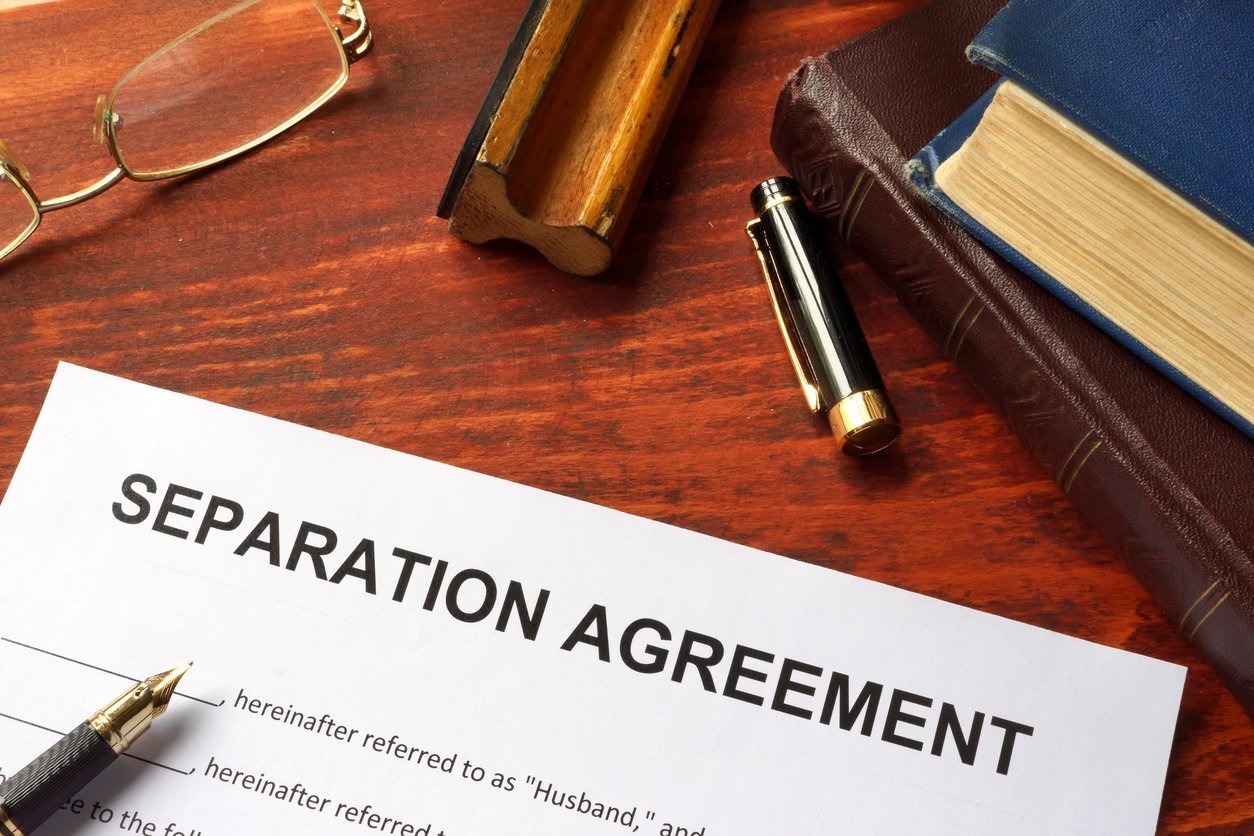
29 Jan What is Legal Separation?
When a couple has differences that they cannot solve, they sometimes turn to divorce. However, there is another less common option – separation. Some couples opt for a legal separation. If you’re not familiar with the term, then there are a few things that you should know.
The Definition of Legal Separation
In a divorce, a marriage comes to an end. However, a legal separation postpones that end. It keeps the marriage intact but allows the two individuals to live separately. While you and your partner could separate without a court order, you need a court order to list the requirements of the arrangement. For example, one spouse might have child custody while the other has visitation. The court order states the agreement, and both parties need to uphold the agreement.
Legal separations are not common. However, the process can be useful. If you and your spouse need to work through an issue, the separation can give you time to do that. While a divorce would completely sever your ties together, a separation keeps them intact while you figure out how to handle your situation.
What Are the Types of Separation?
There are several different types of separation. Before you decide to go through with your separation, you should consider your options.
1. Trial Separation
In this type of separation, you and your partner spend time apart to determine whether or not to divorce. This type of separation is not the same as a legal separation. Instead of a legal agreement, it is a casual agreement between individuals in a marriage. It’s merely time apart from your spouse. If you obtain any money or property during that time, then it is shared property. Even if you and your spouse eventually divorce, you need to share your earnings. If you plan on acquiring money or property during your separation, then a trial separation might not be the best option.
2. Separate Living
In this type of separation, you and your spouse agree to live apart. Unlike a trial separation, you sign a written agreement. If you and your spouse want to leave apart but have no intent to continue your marriage, then this might work for you. Some states require this type of separation for a no-fault divorce. If you live in a state that requires separation before your divorce, then you need to file the paperwork to do so. After the required time period, you can go through with your divorce.
This type of living situation does affect your property division. However, the division depends on your state. In some states, the property that you acquire during your separation is yours. In other states, it depends on your intent to end the marriage. For example, some states treat the property as joint property unless you planned to end the marriage. Certain states consider all of your property joint property until you file for divorce. Before you decide to live separately, you should find out about your state’s laws. Failing to do so could mean that you lose your newly acquired assets during your divorce.
3. Permanent Separation
When you and your partner decide to end your relationship, you might decide to have a permanent separation. For this type of separation to be legally binding, you need to file the paperwork for a legal separation.
In a permanent separation, you keep any property or debt that you acquire after you file the separation paperwork. However, any family-related debt that you or your spouse acquire is joint debt. For example, your child’s tuition would be a joint debt. It doesn’t matter who pays for it; the responsibility lies on both parents’ shoulders. House payments and home maintenance also count towards join debt.
Like many other issues, every state has different laws that relate to property and debt division. If you plan on getting a permanent separation, then you should learn about those laws.
What Issues Come Up in a Separation?
Much like a divorce, a court is responsible for working out your agreement. If you can’t agree on an issue, then a court decides on the terms. The agreement is known as separation maintenance. In the agreement, the court includes issues like child custody and visitation. Additionally, the court decides on property division. Property division depends on the type of separation for which you and your partner file.
It’s worth noting that your separation agreement has no bearing on your divorce agreement. If you decide to divorce after your separation, then the court makes a new decision about issues like property division and custody.
Many factors affect your legal separation. Before you go through with it, you should speak to a lawyer. He can talk to you about the consequences of filing for separation. If you want to file, then he can help you do so successfully. There’s a lot at stake, so you should do your research and consult with an attorney.



Sorry, the comment form is closed at this time.